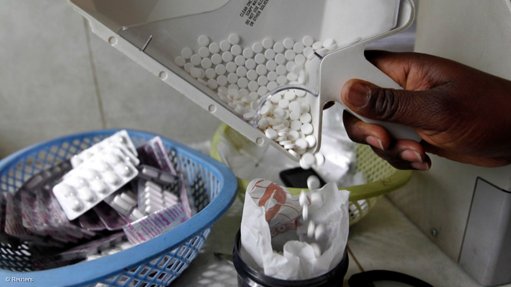
Photo by: Reuters
Researchers from the University of the Witswatersrand (Wits) have announced that CAB LA injections, taken once every eight weeks, are more effective in preventing HIV in women in sub-Saharan Africa, compared with the daily TDF/FTC pill that is currently being used.
These are the results of the NPTN trial, which have been touted as a milestone for prevention of HIV among women and as motivation for further studies.
The trial was headed by Wits Reproductive Health & HIV Institute (Wits RHI) director of research Dr Sinead Delany-Moretlwe and jointly funded through a partnership between the US National Institute of Allergy and Infectious Diseases, the US National Institute of Mental Health, the Bill & Melinda Gates Foundation and ViiV Healthcare.
The trial saw the participation of 3 223 cisgender women from Botswana, Eswatini, Kenya, Malawi, South Africa, Uganda and Zimbabwe.
The average age of participants was 26 years, with 57% of participants under the age of 25.
Eighty-two per cent were not living with a partner, 55% reported two or more partners in the past month, and 34% reported having a primary partner who is living with HIV or has an unknown HIV status.
During the follow-up, 38 HIV infections occurred, with four in the CAB LA arm and 34 in the TDF/FTC arm.
“We know that adherence to a daily pill continues to be challenging, and an effective injectable product such as long-acting CAB is a very important additional HIV prevention option for them. We are grateful to the women who volunteered for this study and the research staff, as this study would not have been possible without their commitment to HIV prevention,” Delany-Moretlwe said.
Wits University said in a statement that the results present an opportunity to change the course of the HIV pandemic for sub-Saharan African women.
A similar study, earlier this year, has also shown that a PrEP regimen containing CAB LA, injected once every eight weeks, was more effective that the daily oral TDF/FTC in preventing HIV among cisgender men and transgender women who have sex with men.
Wits vice chancellor and principal designate Professor Zeblon Vilakazi underscored the importance of research entities and research-intensive universities.
“Universities like Wits continue to generate high-quality, locally-relevant knowledge that matches and exceeds global standards. Congratulations to the Wits RHI team for leading world-class research from Africa that addresses the burden of disease on the continent – this incredible breakthrough will certainly save the lives of many women living in sub-Saharan Africa, and beyond,” he said.